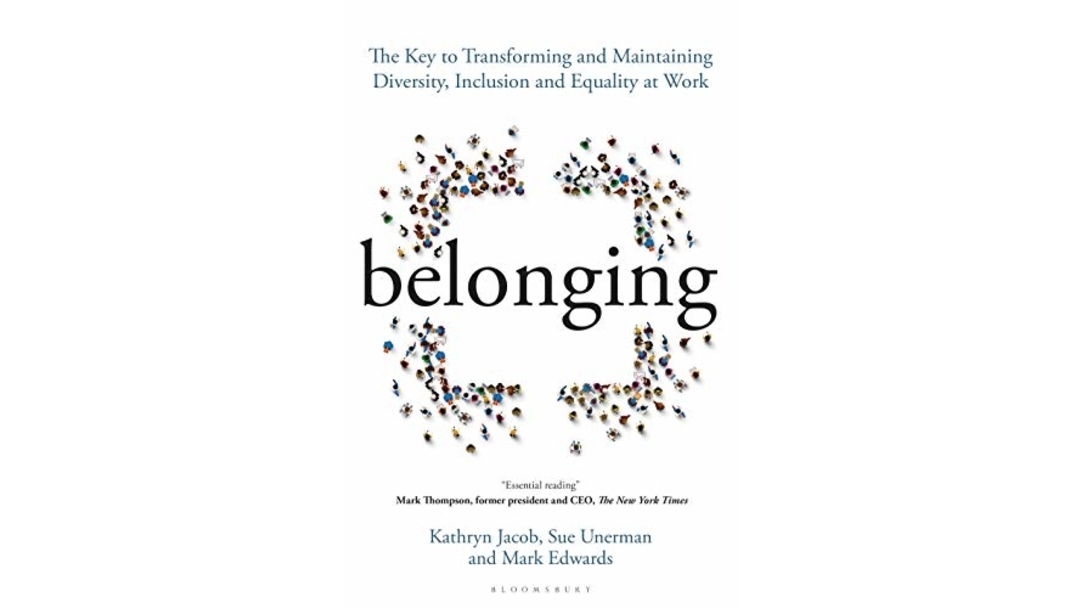The first sentence of the foreword by Karen Blackett OBE perfectly encapsulates what Belonging by Kathryn Jacob, Sue Unerman and Mark Edwards is all about: “Diversity is not a problem to fix. Diversity is the solution.” Diversity is not only about being inclusive, and helping to create equality. From a business standpoint, diversity is the key to growth and creativity within a company. Blackett also uses a brilliant analogy of the Avengers. Like the superhero team, a team within a company needs to be filled with different skill sets, attitudes and beliefs in order to achieve a shared goal.
With the rise of the #MeToo and Black Lives Matter movements, and an increased discourse into inequality in the workplace, it is clear that the world is ready for a drastic change. Studies show that diversity is key to the success of a company, especially when that diversity starts from the top; a study by Boston Consulting Group found that companies with more diverse management teams have 19% higher revenue due to innovation. Despite this, other statistics show that there are only 10 BAME people in leadership roles in the FTSE 100, and minorities are still less likely to be hired for the roles they apply to. The authors focus mainly on one particular reason that progression is not moving as fast as it could; the lack of men engaging with diversity and inclusion initiatives. The book aims to be a call to action for men in particular to help create equality for all demographics at every level in the workplace.
The first half of the book is dedicated to the what and why of diversity; we are given an insight into what diversity currently looks like as of 2020, when the book was published. Some of the statistics presented were eye opening yet as someone who intersects into multiple marginalised groups, they were also unfortunately unsurprising. For example, one in five people in the UK have felt excluded or marginalised – 43% of 18-24 year olds, over a third of mums returning from maternity leave, a third of BAME, around half of people who are registered disabled, and half who are neurodivergent. Similarly, 43% of 18-24 year olds, 40% of BAME, 57% disabled, 60% neurodiverse, 51% of those diagnosed with mental health issues, 48% of those in the LGBTQ+ community and 50% of women expecting their first child have experienced bias, harassment or inappropriate behaviour.
The second half of the book moves towards the how; how can we strive for diversity, inclusion and equality at work. From the recruitment process, finding a sponsor and building a shared culture, to embracing F.A.I.L (First Attempt In Learning) and handling difficult conversations, Belonging aims to provide practical advice blended perfectly with anecdotes, studies and statistics.
The book overall aims to not only change the minds of white men who believe there is a zero sum relationship – that if things are better for women, things get worse for men, but everyone’s. It is everyone’s responsibility to help increase the number of men who engage with diversity and inclusion initiatives. As stated by the authors, there are three essential ingredients for change:
1. Every organisation must set a course with clear targets informed by real data (including gender and ethnicity pay gaps).
2. There must be a programme to support diverse groups.
3. Crucially, those in power (predominately white men) in the organisation must want change to happen and for it to be credible and lasting. This is where diversity efforts and initiatives are currently failing.
Belonging offers a road map to empower everyone within a company, from entry level to CEO to answer the call to action and become part of the solution to the bigger issues surrounding discrimination in society. Kathryn Jacob, Sue Unerman and Mark Edwards have written an essential read for a modern society.
Reviewed By: Cassie Boyce, Marketing Assistant, Women in Tech forum
April 2021

